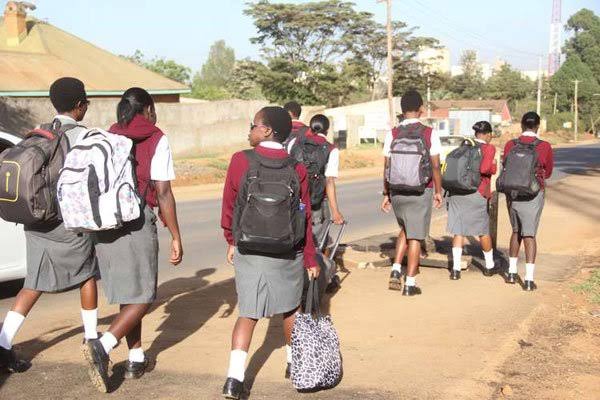Schools will reopen tomorrow for the second term of the 2022 academic year, which promises to be a difficult time for students, teachers, and parents as the effects of the pandemic continue to affect basic education for the third year in a row.
The second term is traditionally one of the longest and busiest in the Kenyan school calendar.
It is usually completed in 14 weeks, but it is now only scheduled to take 10 weeks.
However, students should spend not more than nine weeks in class.
Schools will be closed for one week between August 6 and 13 to allow for the General Election, which will be held on August 9.
The Independent Electoral and Boundaries Commission uses most public schools as polling stations and tallying centers (IEBC).
If there is a runoff in the presidential election, students will lose more class time because schools will be forced to close again for a repeat election.
The same thing would happen if the election was declared invalid by the Supreme Court, as it was in 2017.
The term will end on September 16, 2022, with schools closing for one week before reopening for the final term of the year on September 26, 2022.
This will be the final term of the two-year crash program before the regular calendar resumes in January of next year.
In order to cover the syllabus, some schools have created extra evening classes and even sacrifices to teach on Saturdays and Sundays.
There is simply not enough time, yet the workload remains constant according to teachers.
Candidates preparing for the Kenya Certificate of Primary Education (KCPE) and Kenya Certificate of Secondary Education (KCSE) examinations will have less time to study because mock tests will be given in the second term.
Learners in Grade 6 will also be preparing for the first Kenya Primary Education Assessment, which will take place in November.
This will be the first assessment since the implementation of the competency-based curriculum.
Term Two also hosts the majority of co-curricular competitions such as ball games and music
However, due to the disruption caused by the pandemic, students have been unable to participate in co-curricular activities.
Although the government has relaxed restrictions on interactions, the congested schedule will prevent the competitions from being resumed for the time being.
Parents have been under pressure to pay fees since last year, with four school terms squeezed in 2021 and 2022 each to make up for time lost due to the pandemic.
Funding Crisis As Schools Reopen On Tuesday
They will be paying school fees for the third time since January, and there is still one term left before the year ends.
It has been especially difficult for them as inflation and the cost of living continue to rise.
As parents struggle to pay their school fees, principals and head teachers have warned that if the government does not wire them money soon enough, they will be unable to manage the schools.
This is because many of them have accumulated massive debts, while their parents also owe massive fees arrears.
Since last year, the government has distributed capitation funds in four tranches rather than the usual three.
The school administrators’ situation has been exacerbated by the high cost of items, despite the fact that they cannot raise school fees mid-year.
Most food, fuel, and other supplies are now significantly more expensive than they were when schools set their budgets and charged fees at the start of the school year.
Some food prices, such as maize and beans, have more than doubled in the last six months.
Following a request from the Kenya Secondary Schools Heads Association, the government is working on a plan for schools to buy food directly from the National Cereals and Produce Board rather than the open market, according to the principal secretary for Basic Education.

